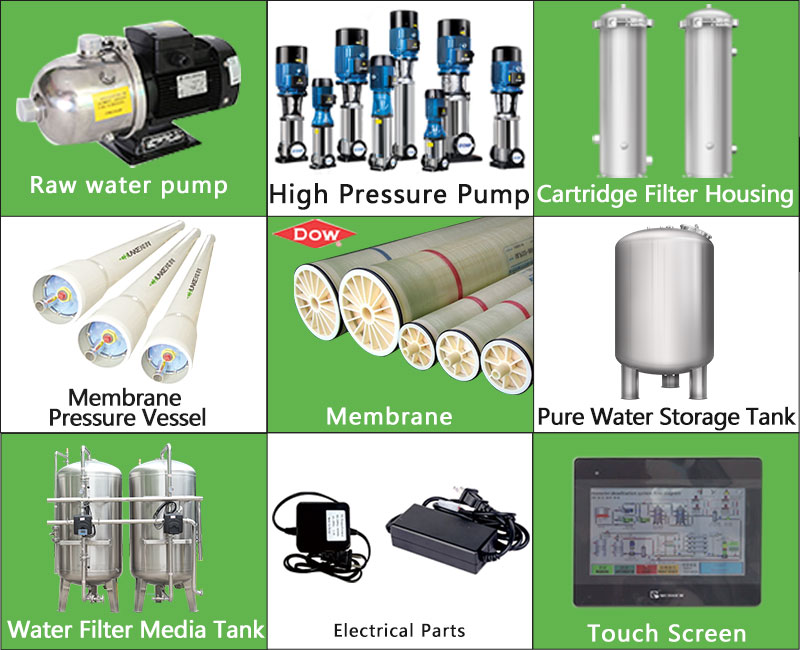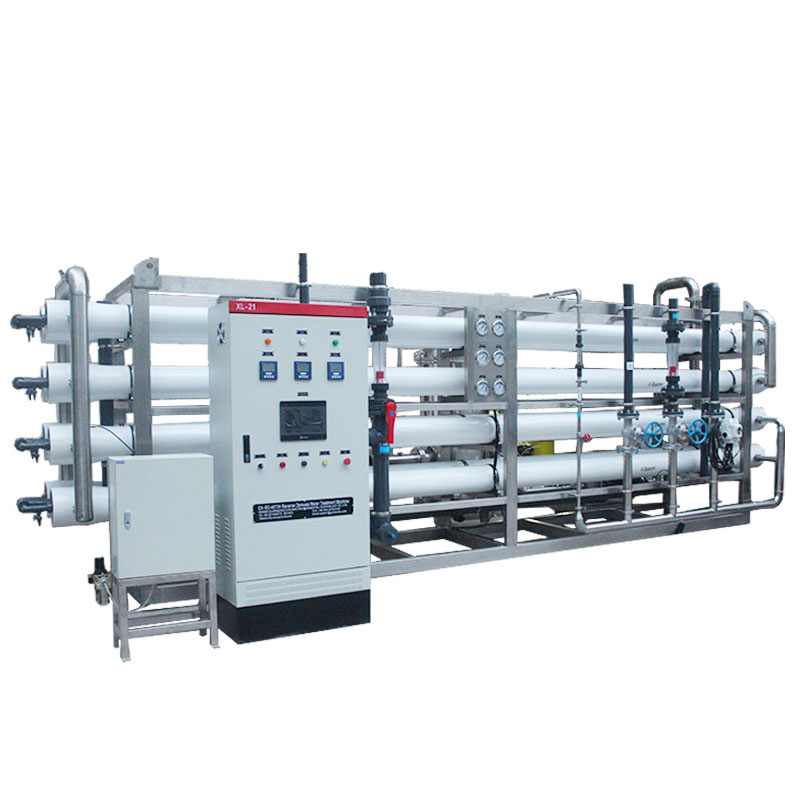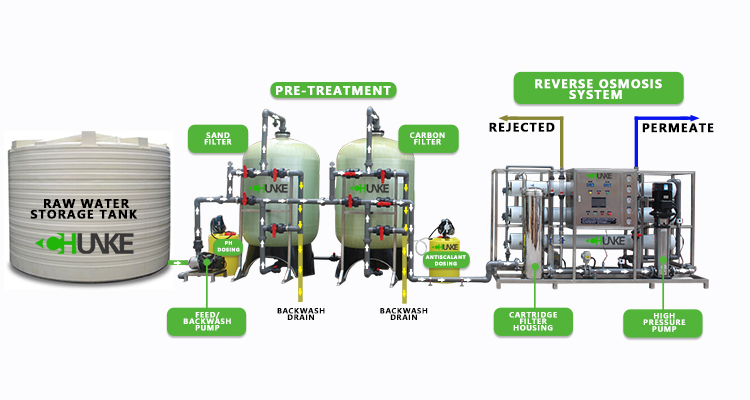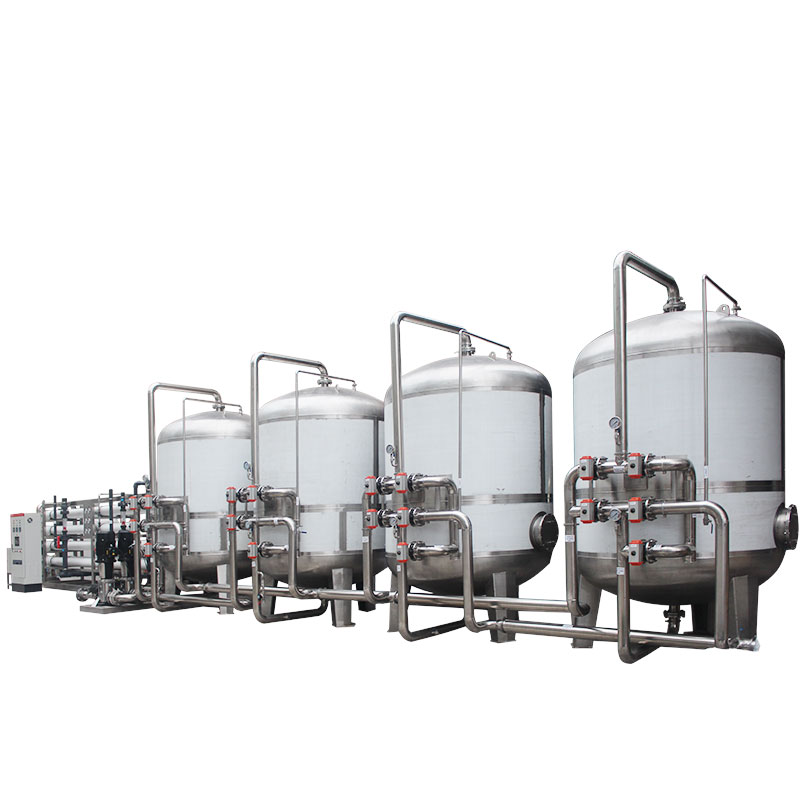Does the water from the water treatment plant supply the farm?
Water is the source of life, and clean water resources are vital to human health, ecological environment, and social and economic development. In modern society, water pollution and water shortage are becoming increasingly serious, prompting governments and enterprises to increase investment in water treatment facilities. As an important part of water resource management, water treatment plants are responsible for ensuring water quality safety, protecting the environment, and meeting social needs.
So, what is the specific purpose of building a water treatment plant? Can treated water be used directly for farm irrigation? This article will explore these issues in depth.

What is the purpose of building a water treatment plant?
The primary task of a water treatment plant is to provide residents with safe and reliable drinking water. Untreated natural water bodies often contain a large number of microorganisms, harmful chemicals, and suspended solids, which pose a threat to human health. Water treatment plants remove these harmful substances through a variety of methods such as physical, chemical, and biological methods to make the water quality meet drinking standards.
In addition to providing drinking water, water treatment plants also have the responsibility of protecting the ecological environment. Untreated sewage such as industrial wastewater, domestic sewage and agricultural runoff discharged into natural water bodies will cause water pollution and endanger the balance of aquatic organisms and ecosystems. Water treatment plants purify these sewage and treat them to meet discharge standards to reduce pollution and damage to the environment.
Secondly, water resources are limited, especially in some arid or semi-arid areas, where water shortages are particularly serious. Water treatment plants can treat sewage to meet reuse standards and use it for non-drinking water purposes, such as industrial cooling, urban greening, and agricultural irrigation. This recycling not only reduces water resource pressure, but also improves the efficiency of water resource use.
In addition, water treatment plants play an important role in public health prevention and control. Many waterborne diseases are transmitted through contaminated water bodies, such as cholera, dysentery and typhoid. Water treatment plants eliminate pathogens through effective disinfection and purification processes, prevent the spread of diseases, and protect public health.

Is the water from the water treatment plant supplied to farms?
As to whether the water produced by the water treatment plant can be directly used for farm irrigation, this issue needs to be analyzed from multiple aspects such as water quality standards, treatment processes and crop needs.
Different water quality standards:
There are two main types of water treatment plants, one is a water treatment plant that specializes in treating drinking water, and the other is a sewage treatment plant that treats sewage. The water quality standards produced by these two types of treatment plants are different. The water quality standards of drinking water treatment plants are higher, and after multiple purification and disinfection processes, they can be directly supplied to residents for drinking. Although the water treated by sewage treatment plants has been purified and disinfected, it usually still contains certain nutrients (such as nitrogen and phosphorus), as well as trace pollutants. Although it meets the emission standards, it may not be completely suitable for direct drinking.
The water quality standards used in agricultural irrigation are different from those for drinking water. Generally speaking, agricultural irrigation water does not need to meet the high standards of drinking water, but it must meet the growth needs of crops and cannot cause adverse effects on soil and plants. The nutrients contained in the treated sewage, such as nitrogen and phosphorus, actually have a certain promoting effect on the growth of crops. Therefore, in some cases, properly treated sewage can be used for farm irrigation.

Application of recycled water:
Recycled water refers to sewage or wastewater that has been treated to a certain standard and can be used for non-drinking purposes. In recent years, with the intensification of the problem of water shortage, the application of recycled water in agricultural irrigation has gradually received attention. In some water-scarce areas, recycled water treated by sewage treatment plants is widely used for farmland irrigation, which not only saves precious freshwater resources but also reduces the over-exploitation of groundwater.
However, the use of recycled water for agricultural irrigation also has its limitations. First, trace pollutants such as heavy metals and organic pollutants remaining in recycled water may have a negative impact on soil and crops. Second, the salt content of recycled water is high, and long-term use may cause soil salinization, affecting the yield and quality of crops. Therefore, when using recycled water for irrigation, strict water quality monitoring and management must be carried out to ensure that no harm is caused to the farmland environment.
Requirements for water quality of different crops:
Different types of crops have different requirements for irrigation water quality. For example, fruit and vegetable crops have higher requirements for water quality, and trace pollutants in irrigation water may affect the safety and quality of the fruit. Some salt-tolerant crops or industrial crops have relatively low requirements for water quality, and the risk of using recycled water for irrigation is relatively small. Therefore, whether water from a water treatment plant can be used to irrigate farmland needs to be judged in combination with specific crop types and water quality conditions.
In summary: whether water from a water treatment plant can be used directly for farm irrigation depends on the type of water treatment plant, water quality standards, and specific needs of crops. Properly treated recycled water has broad application prospects in agricultural irrigation, but attention must be paid to water quality monitoring and management to avoid negative impacts on soil and crops. When choosing an irrigation water source, farmers should fully understand the water quality and make scientific and reasonable decisions based on crop types and environmental conditions.





